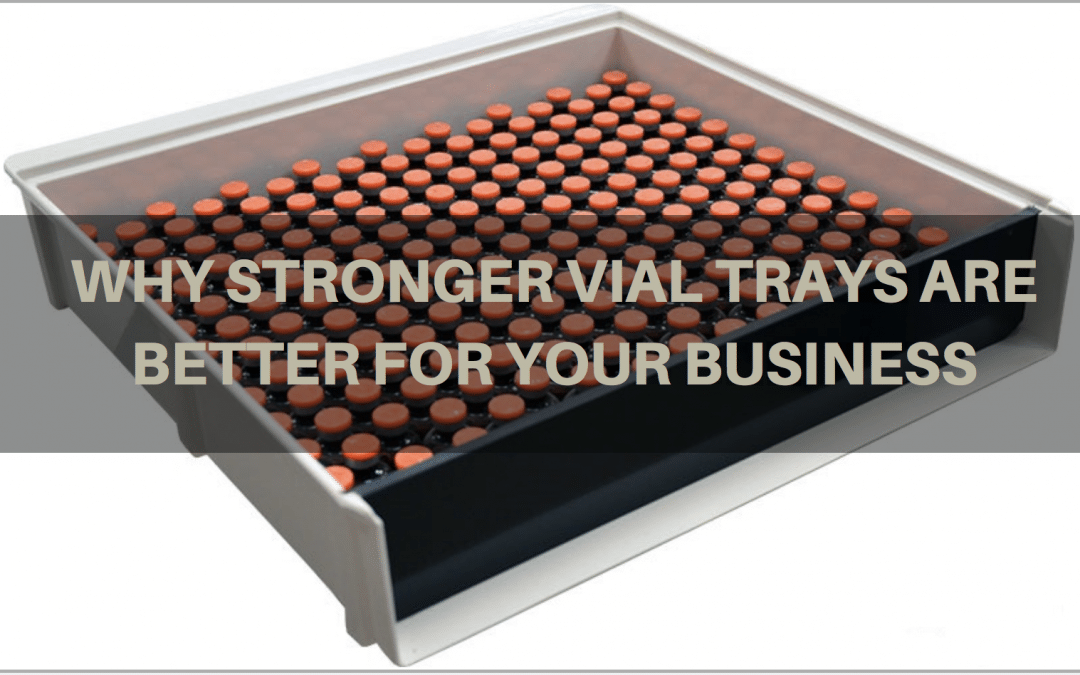Pivotal, but often forgotten, vial loading trays are known to be part of the manufacturing process for a lot of different businesses. From the food processing industry to the biotech industries to pharmaceuticals, a lot of materials are stored and processed in these trays on their way to becoming a final product. As manufacturing veterans can tell you, one weak link in a chain can end up disrupting the entire process, costing time, money, and potentially even more. Here’s why you can’t let your vial trays be that weak link.
Perhaps the biggest issue that weaker vial trays can cause isn’t necessarily what one tray can do, but what several trays can do over time. For example, say that you invest in a tray that is ill-suited to handle hot temperatures, which is a staple of many manufacturing processes. Every now and then, this may lead to a tray deforming or breaking, potentially ruining some of your end product. Part of working in manufacturing is understanding that on occasion, some things aren’t going to work out as planned, and things will break. Along with this, to the naked eye, 1/1000 ruined vial trays may not seem like a huge impact.
However, this is the wrong way to look at it. Having 1/1000 trays as a one-time issue may be something that you can get around, but 1/1000 trays, extrapolated to however many batches of material your facility may put out in a day, can mean a major loss over time. This cuts into profits, and if margins are already thin, those vial trays could be the difference between making and losing money.
Perhaps even more concerning is if the compromised vial trays may still hold together but impact the materials you are making in another, more subtle way. Pharmaceutical and food industries are built on uniformity. If an issue with your vial trays throws these off, there are two results, neither of which are good for your company.
A: Your QA department captures the issue. This means extra time and energy expended on their part, but you still have to eat the loss of the product that can no longer be used or sold.
B: This isn’t caught, potentially exposing your company to lawsuits or pressure from regulatory bodies.
Due to all these different factors, it’s essential that vial trays are one of the areas that you try not to find cheap alternatives for, even if you think it’s not necessary at first glance. The key is making sure that any products that you are creating using said vial trays have uniform dimensions, density, and materials. The best way to ensure this is by using items and tools at all steps of manufacturing that combine modern, advanced materials. Chemtech International is the perfect match—a family-run business with 30 years of experience helping companies around the world with environmental compliance. Our vial trays are made from a proprietary fiberglass blend for maximum durability, performance, and value.
